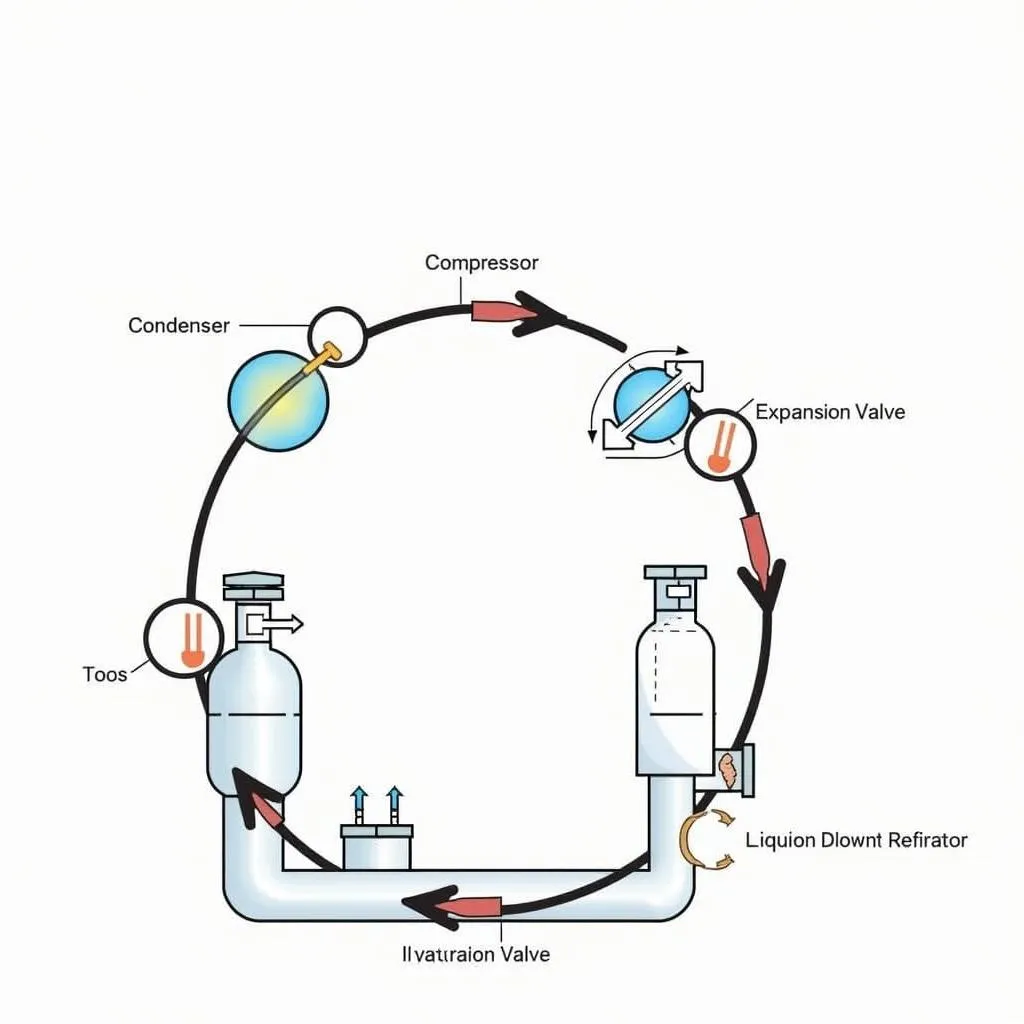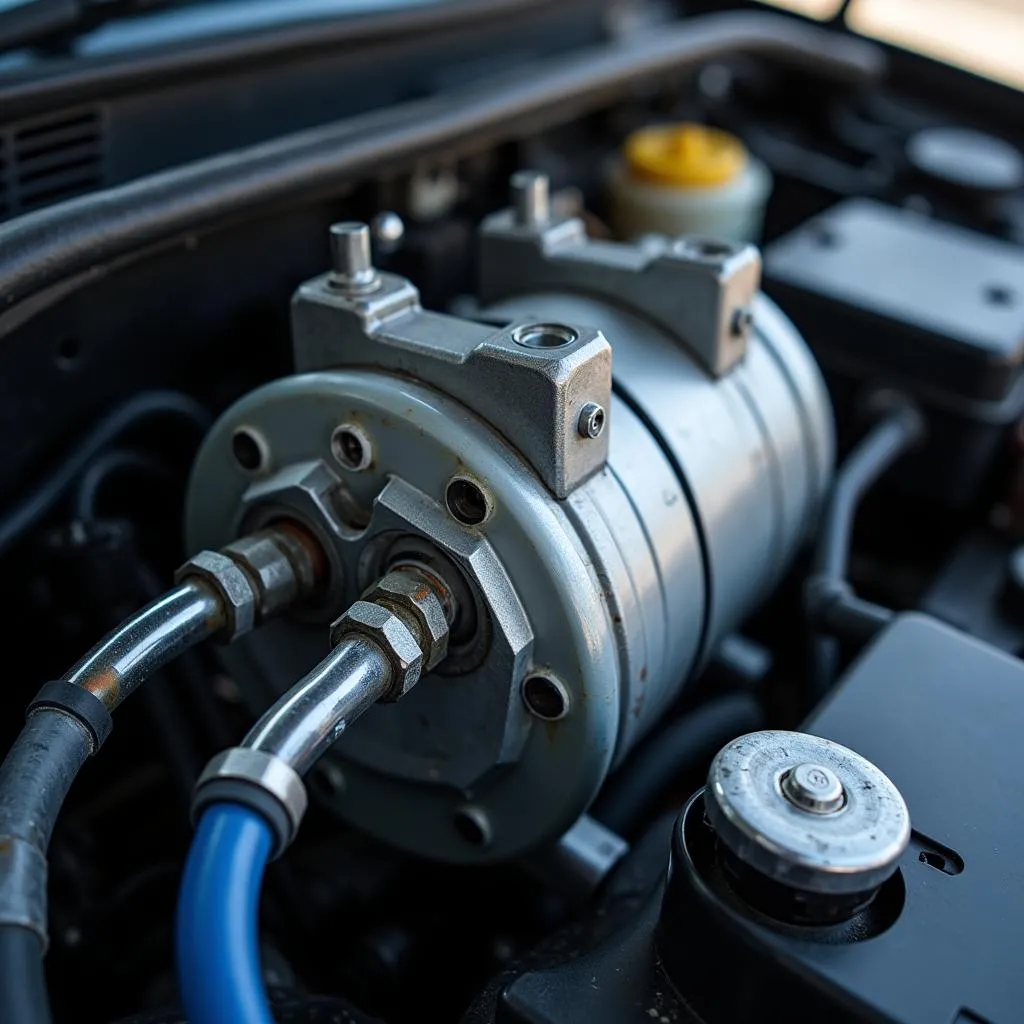A car’s air conditioning system is a true blessing, especially on hot summer days. However, like any other component in a vehicle, the AC system requires regular maintenance and care. A key component is the Car AC refrigerant, also known simply as refrigerant. But what role does this refrigerant actually play, and why is it so crucial for a functioning air conditioning system?
In the following article, we will take a closer look at Car AC refrigerant and provide you with all the important information you need.
The Function of Car AC Refrigerant
The Car AC refrigerant is the heart of the entire system. It circulates in a closed loop and ensures that the air in the vehicle’s interior is cooled. This process is based on the principle of evaporative cooling.
 Diagram showing the circulation of car air conditioning refrigerant
Diagram showing the circulation of car air conditioning refrigerant
Simply put, the refrigerant absorbs heat from the vehicle’s interior and transports it outwards. In doing so, it changes its state from liquid to gaseous and back again.
Different Types of Car AC Refrigerant
Not all Car AC refrigerant is the same. Over time, various refrigerants have been developed that differ in their composition and environmental impact. The most common types are:
- R134a: This refrigerant was the standard in vehicles for a long time.
- R1234yf: This refrigerant is significantly more environmentally friendly than R134a and is used in newer vehicles.
Important: It is not possible to mix the different refrigerants. Using the wrong refrigerant can cause damage to the air conditioning system.
Why Car AC Refrigerant Is So Important
Car AC refrigerant is essential for the function of the entire system. Without it, the air conditioning cannot produce cold air. Furthermore, the refrigerant also lubricates the moving parts within the AC compressor. A lack of refrigerant can therefore lead to severe damage to the compressor and other AC components.
 Image of a car's air conditioning compressor
Image of a car's air conditioning compressor
When Should Car AC Refrigerant Be Checked and Refilled?
Car AC refrigerant should be checked regularly and refilled as needed. A check and potential refill/service is recommended every 2-3 years. A low fill level can lead to reduced cooling performance and, in the worst case, damage to the system.
Signs of a Low Car AC Refrigerant Level:
- Reduced cooling performance of the AC.
- Unusual noises during AC operation.
- Unpleasant odors in the vehicle’s interior.
If you notice any of these signs, you should immediately visit a workshop or mechanic to have the air conditioning checked.
Should You Refill Car AC Refrigerant Yourself?
DIY refilling of Car AC refrigerant is strongly advised against. Handling refrigerants is dangerous and requires special knowledge and tools. Therefore, always leave the maintenance and repair of your air conditioning system to a professional.
Conclusion: Car AC Refrigerant – Essential for a Cool Driving Experience
Car AC refrigerant plays a central role in the function of your air conditioning system. Regular maintenance and inspection of the refrigerant are therefore essential to extend the lifespan of your AC system and ensure a pleasant driving experience on hot days.
Other Interesting Topics Around Your Car:
- Evacuating Your AC System: Learn more about evacuating air conditioning systems.
- Hyundai X35: Information about the Hyundai X35.
Have questions about car air conditioning or need help with a repair? Feel free to contact us, our experts are always available to assist you!

